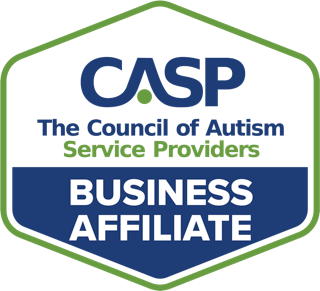Amid economic volatility and the public health crisis, not all businesses are prepared. The daily grind of running an ABA therapy practice can keep your plate full, and the last thing you want to think about is building a business continuity plan.
As a business owner, being prepared is just as important as running your business. No business is 100% immune to interruptions.
Interruptions for a business can be:
- Cyber threats
- Server outages
- A health outbreak like COVID that prohibits staff from working
If these occur:
- What’s next?
- What will happen to your clients?
- What will happen to your business and employees?
Benefits of Business Continuity Plans
Many believe business continuity plans are for enterprises and large corporations, but even small businesses can benefit from having something in place. Here are just a few of the benefits:
- Limit Interruptions – With a plan in place, you will have a standardized process and response to minimize downtime. Less downtime equals less stress and less revenue lost.
- Lay Out Alternatives – There should always be a backup plan. This could be as simple as reducing hours, limiting capacity, or delaying services. If you actively communicate with clients using an email marketing solution, leverage that to communicate with all your clients in different ways.
- Empower Staff – Having a plan in place will ensure that your team is on the same page. Employees will know what needs to be done to keep your business running, but it will also allow them to step up in places you may not have thought of.
Having a plan in place will reduce your anxiety during a crisis. No plan will be perfect, but it will align all stakeholders on how to approach the common problem.
Having a plan in place will reduce your anxiety during a crisis. No plan will be perfect, but it will align all stakeholders on how to approach the common problem.
RethinkBH Share this
How To Get Started?
Before you get started on putting a plan together, first identify internal challenges. For example, if your emails and computers go down, who do you call? Does everyone in the office know what to do?
Planning for every situation is complex and hard to manage, but a lot businesses only need a basic plan in place. For the purpose of this article, we want to keep things simple. A simple plan you can put together is a spreadsheet of important contacts. This spreadsheet should include:
- Name of Contact
- Responsibilities
- Phone Number
- Comments
These can be internal or external contacts. Make sure you communicate this spreadsheet with your staff, have printed copies available, and periodically update to reflect any changes made.
That being said, for therapists that still rely on paper and pencil, it’s important to consider that those files are at an even greater risk if an environmental emergency occurs. As mentioned above, no business is immune to interruptions, but practice management providers have systems in place to recover data during worst-case scenarios.
While some businesses may experience no issues, others may experience multiple over the course of their existence. At Rethink, we have multiple plans that are actively reviewed and updated in case of emergencies. During an emergency, the best any business can do is actively communicate with customers while addressing the problem internally.
If you have questions on how to get your continuity plan started or implemented, contact us today with any questions.









